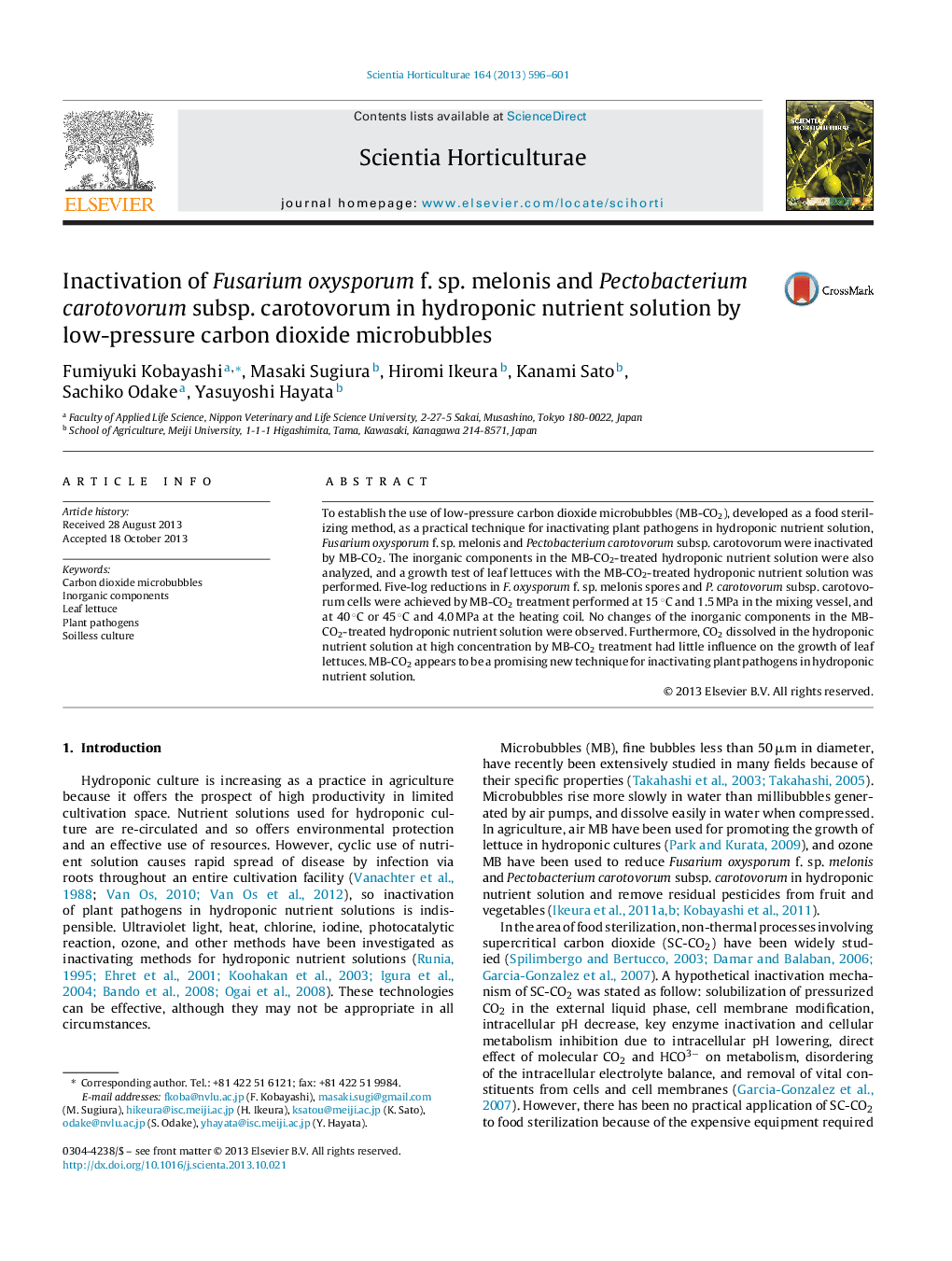| Article ID | Journal | Published Year | Pages | File Type |
|---|---|---|---|---|
| 4567112 | Scientia Horticulturae | 2013 | 6 Pages |
Abstract
To establish the use of low-pressure carbon dioxide microbubbles (MB-CO2), developed as a food sterilizing method, as a practical technique for inactivating plant pathogens in hydroponic nutrient solution, Fusarium oxysporum f. sp. melonis and Pectobacterium carotovorum subsp. carotovorum were inactivated by MB-CO2. The inorganic components in the MB-CO2-treated hydroponic nutrient solution were also analyzed, and a growth test of leaf lettuces with the MB-CO2-treated hydroponic nutrient solution was performed. Five-log reductions in F. oxysporum f. sp. melonis spores and P. carotovorum subsp. carotovorum cells were achieved by MB-CO2 treatment performed at 15 °C and 1.5 MPa in the mixing vessel, and at 40 °C or 45 °C and 4.0 MPa at the heating coil. No changes of the inorganic components in the MB-CO2-treated hydroponic nutrient solution were observed. Furthermore, CO2 dissolved in the hydroponic nutrient solution at high concentration by MB-CO2 treatment had little influence on the growth of leaf lettuces. MB-CO2 appears to be a promising new technique for inactivating plant pathogens in hydroponic nutrient solution.
Related Topics
Life Sciences
Agricultural and Biological Sciences
Horticulture
Authors
Fumiyuki Kobayashi, Masaki Sugiura, Hiromi Ikeura, Kanami Sato, Sachiko Odake, Yasuyoshi Hayata,
